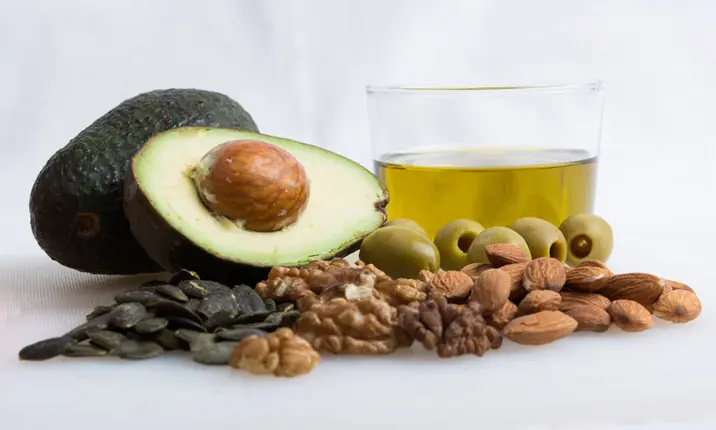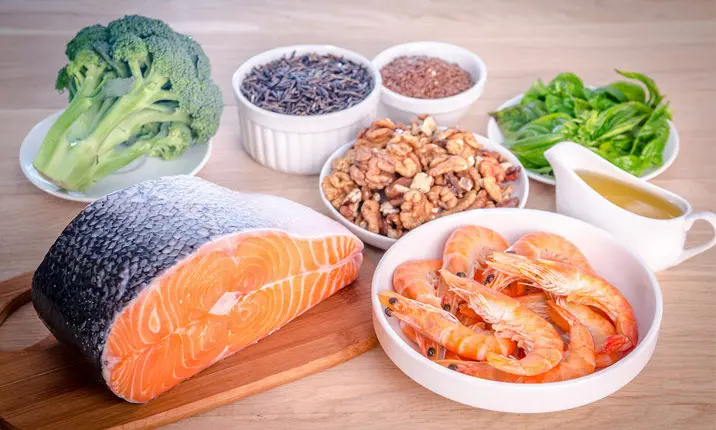-
-
Featured Care Areas


Source: Shutterstock
Good Fats Vs Bad Fats
Last updated: Thursday, February 21, 2019 | 3 min reading time
Your body needs fat just as much as it needs protein and carbohydrates. Instead of cutting fat out from your diet, it is more important to know how to distinguish the good fats from the bad.
What is fat?
For the longest time, you have been told to stay away from fat because you have been told it is unhealthy. This is partially true as certain types of fats may increase your risk of cardiovascular disease, diabetes, cancer, and obesity. However, if consumed in moderation, some fats are essential and good for your health. Certain bodily functions also rely on fat, for example, some vitamins require fat in order to be absorbed so as to better promote the different functions in the body.
All foods contain a mixture of fatty acids, but the type of fat they contain is what makes them "good" or "bad".
Different types of fat
There are 4 major dietary fats in the foods we eat:
- Saturated fats
- Trans fats
- Monounsaturated fats
- Polyunsaturated fats
Bad fat and how it affects your health
Saturated fats and trans fats are harmful to your health. The majority of the foods that primarily contain these fats, such as butter, margarine, and beef fat, are usually in a solid state at room temperature.
Saturated fats
The majority of saturated fats are animal fats. These can be found in high-fat meats as well as dairy products. When consumed in excess, saturated fat can increase blood cholesterol levels and low-density lipoprotein (LDL) levels, also known as "bad" cholesterol. Sources of saturated fats include:
- Animal / poultry meat and skin
- Fatty cuts of beef, pork, lamb and mutton
- High-fat dairy products (full cream milk, butter, cheese, ice cream, sour cream, whipping cream)
- Lard, ghee
- Tropical oils (coconut oil, palm oil, cocoa butter)
Trans fats
Also known as "trans fatty acids", trans fat is found in foods that contain partially hydrogenated vegetable oils. What trans fat does is, it can raise your LDL levels ("bad" cholesterol) and reduce your high-density lipoprotein (HDL) levels ("good" cholesterol). Most dietary guidelines recommend keeping our trans fat intake consumption to a minimum. Sources of trans fat include:
- Baked goods (cookies, cakes, pastries / puffs)
- Fried foods (French fries, doughnuts, deep-fried fast foods)
- Margarine
- Processed snacks (crackers, microwave popcorn, chips)
- Vegetable shortening
Good fat and its health benefits
Both monounsaturated and polyunsaturated fats are our "heart-healthy fats". Foods that primarily contain these healthier fats, such as vegetable oil, are typically in liquid state at room temperature.
Monounsaturated fats
This healthy fat is present in different kinds of foods and oils. Including foods rich in monounsaturated fats in your diet can improve your blood cholesterol levels and decrease your risk of cardiovascular disease.
Sources of monounsaturated fat include:
- Avocado
- Nuts (almonds, cashews, hazelnuts and pecans)
- Peanut butter and almond butter
- Vegetable oils (olive, canola and peanut oil)
Polyunsaturated fats
Also known as "essential fats", polyunsaturated fats are vital to your health as your body is unable to produce them and needs them from foods. The primary source of this type of fat is plant-based foods. Like monounsaturated fat, polyunsaturated fat decreases your risk of heart disease by lowering your blood cholesterol levels.
Sources of polyunsaturated fat include:
- Roasted soy beans and soy nut butter
- Seeds (sunflower, pumpkin and sesame seeds)
- Vegetable oils (corn, safflower, sesame and sunflower oil)
- Nuts (walnuts, pecans, Brazil and pine nuts)
One particular type of polyunsaturated fat, called omega-3 fatty acids, has been proven to be especially beneficial to your heart. It not only helps decrease the risk of coronary artery disease, but also aids in reducing triglyceride levels and lowering our blood pressure.
Sources of omega-3 fatty acids include:
- Herring / salmon / sardines / trout
- Linseed / flaxseed / chia seeds
- Walnuts
- Fish oils
Moderation is key
Though research has revealed that not all fats are bad for your health, it is crucial to moderate your consumption of them because, while some fats are beneficial to your health, all fats are still high in calories. Begin your journey to a healthier you by incorporating more monounsaturated and polyunsaturated fats in replacement of your saturated fats consumption, and limiting trans fats from your diet intake.
Dietary Fats. Retrieved 17/06/2019 from https://www.heart.org/en/healthy-living/healthy-eating/eat-smart/fats/dietary-fats
Healthy Fats vs. Unhealthy Fats: What You Need to Know. Retrieved 17/06/2019 from https://www.healthline.com/nutrition/healthy-vs-unhealthy-fats
The Skinny on Fat: Good Fats vs. Bad Fats. Retrieved 17/06/2019 from https://www.webmd.com/diet/obesity/features/skinny-fat-good-fats-bad-fats#1
Nutrition and healthy eating. Retrieved 17/06/2019 from https://www.mayoclinic.org/healthy-lifestyle/nutrition-and-healthy-eating/expert-answers/mufas/faq-20057775
Healthy Fats vs. Unhealthy Fats: What You Need to Know. Retrieved 17/06/2019 from https://www.healthline.com/nutrition/healthy-vs-unhealthy-fats
The Skinny on Fat: Good Fats vs. Bad Fats. Retrieved 17/06/2019 from https://www.webmd.com/diet/obesity/features/skinny-fat-good-fats-bad-fats#1
Nutrition and healthy eating. Retrieved 17/06/2019 from https://www.mayoclinic.org/healthy-lifestyle/nutrition-and-healthy-eating/expert-answers/mufas/faq-20057775












